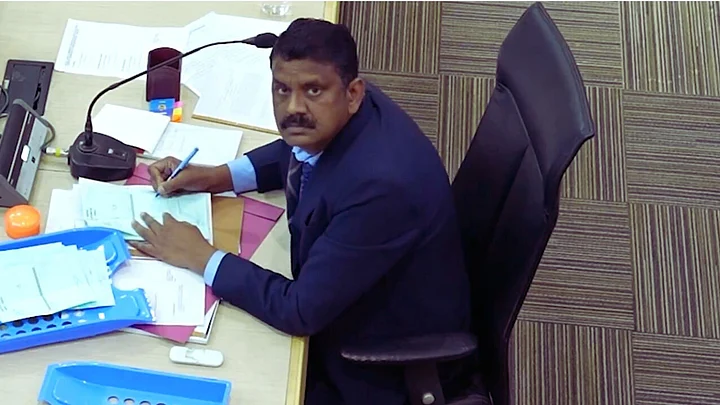To say that the events in the Chandigarh mayoral poll on 30 January 2024 were extraordinary is to put it mildly. The guilty face of Returning Officer Anil Masih peering into the camera while casually defacing validly cast votes from Aam Aadmi Party and Congress corporators, to rig the outcome in favour of the Bharatiya Janata Party (BJP) is an abiding picture of shame not just for the Chandigarh BJP but for a country which prides itself on being the world’s largest democracy.
The response of the Supreme Court to this incident has been quick, effective, and decisive. Not only did the Supreme Court recognize the blatant illegality on the face of it, it also ensured that the declared “winner” did not take any benefit from the illegality whatsoever, and ensured that full justice was done to the aggrieved party. All this, within three weeks of the incident, can leave one slightly dizzy at the pace and force with which the Supreme Court has moved in this matter.
The Court Did Not Hesitate to Act
Shady, underhanded behavior in the context of local elections has happened before in the past. And the Supreme Court has had an unfortunate history of not acting in a timely manner. The late Fali Nariman gives an example from a time of Emergency when the Government had detained non-Congress members of the (then) Bombay Municipal Council under the draconian Maintenance of Internal Security Act, 1971. Nariman appeared on behalf of the detained councilors asking the Bombay High Court that they be permitted to cast their vote in the Council since they hadn’t lost the right to vote merely because they had been detained.
The Bombay High Court granted the eminently reasonable prayer but when the Government went to appeal to the Supreme Court, a stay was granted promptly resulting in the Congress nominee winning the mayoral elections. What galled Nariman most was that the Supreme Court had granted the stay simply for the asking by the then Solicitor General, without a formal appeal being filed or even a copy of the judgment being available.
This time though, the outcome was quite different.
After the Punjab and Haryana High Court refused to grant any immediate relief to the AAP candidate for Mayor, Kuldeep Kumar argued that facts needed to be established in the matter. When the matter was taken to the Supreme Court in appeal, the Court did not hesitate to act on the video evidence placed before it, plain as day. CJI Chandrachud’s shocked reaction to the actions of Masih made headlines and he insisted that he be present in court to justify his actions.
In court, CJI Chandrachud’s grilling of Masih has, as expected, gone viral. The blatant nature of the rigging, the video evidence available, and the complete inability of Masih to offer anything like a reasonable explanation for his actions have doomed him. Not only has he lost his position as the BJP’s Minority Morcha office bearer, but he now faces the prospect of criminal prosecution for his misdemeanours.
The Court Has Perhaps Heard the Criticism of the Gap Between Its Words and Actions
Even more than the chastisement of Masih, what is perhaps most noteworthy and somewhat unprecedented is the SC’s actual relief in the matter. Whereas Kuldeep Kumar had moved the court only seeking the setting aside of the elections, the Supreme Court has invoked its power under Article 142 (the power to do “complete justice”) to ensure that he becomes the mayor by counting the invalid votes as valid.
While the full text of the judgment is awaited (and this article will be updated accordingly), the oral observations of the court indicate a concern with horse trading taking place. The court has seemingly exercised its power under Article 142 to ensure that the order and judgment in the case have not been rendered useless because of further machinations of the BJP.
How to make sense of the court’s actions?
One way to see it is that this is only a mayoral election in a Union Territory comprising twelve lakh people. It is hardly an issue of national importance and the court’s response might seem to be a case of a brahmastra against a sparrow (as the Kannada saying goes).
The other way to see it is that the court has perhaps heard the criticism of the vast gap between its words and actions. That a court keeps talking about its commitment to the values of the constitution, democracy, et al, and does nothing in upholding these values risks losing all legitimacy. It is perhaps necessary to see the judgment of the Supreme Court in the Chandigarh mayoral election case as part of the recent trend beginning with the judgment in the Bilqis Bano case, the Electoral Bonds case, and the order in the case challenging the new Forest Conservation Act.
Will the court keep this trend of bold action against the government going? Time will tell but one can only say that it is welcome.
(Alok Prasanna Kumar is a Senior Resident Fellow at the Vidhi Centre for Legal Policy in Bengaluru. He is also a member of the Executive Committee of the Campaign for Judicial Accountability and Reforms. This is an opinion piece, and the views expressed are the author’s own. The Quint neither endorses nor is responsible for them.)
